As economically repressed people we must unite in solidarity to address the laws that perpetuate and maintain this economic repression. ~ Kelsey Schomberger, Oregon SOS participant and disabled activist in Portland, Oregon.
Participants and organizations from all over Oregon came together in unison on February 18, 2016, for the Oregon SOS – Fight High Rents and Low Wages rally demonstration, outside and inside the State Capitol Building in Salem, Oregon. Their messages ranged from raising minimum wage, local control of rent costs and stopping Oregon Department of Transportation sweeps of the houseless.
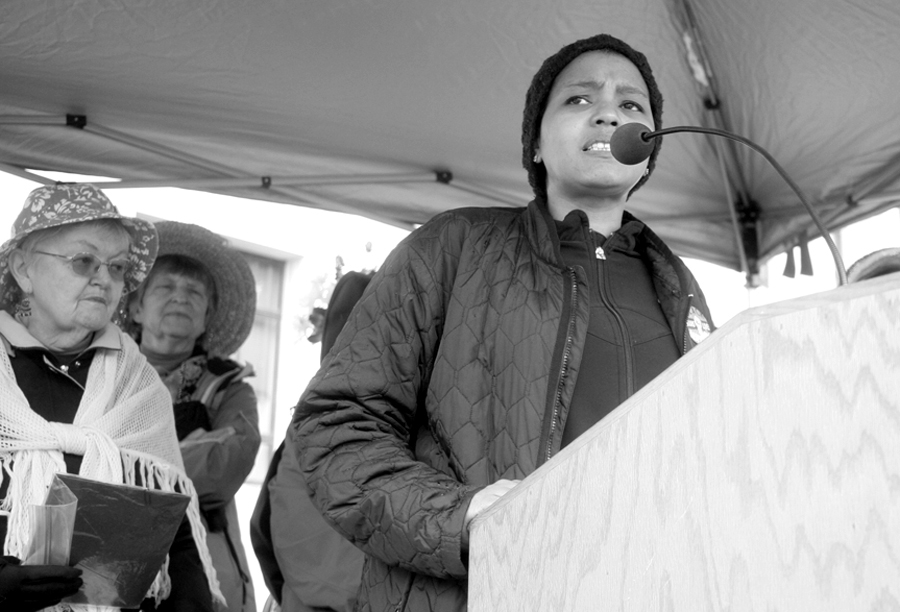
Activist for human rights, Teressa Raiford is the master of ceremonies at the Oregon SOS rally in Salem, Oregon. Her speeches in between introducing the speakers motivates the crowd and addresses the issues from the day’s topic of discussion.
We have to do something now. We can’t think that homelessness is something that is a norm. We can’t say that people who don’t have enough are lazy, they’re not. Our politicians are just not courages enough to do the right thing. We need a living wage. We need to make sure that the future of our children is secure by a stable home life. We need to make sure that women who are dealing with domestic violence don’t need to stay in the situation because they can’t afford to take care of their children on less than 15 dollars an hour. We have to do what we can, 15 Now! ~Teressa Raiford
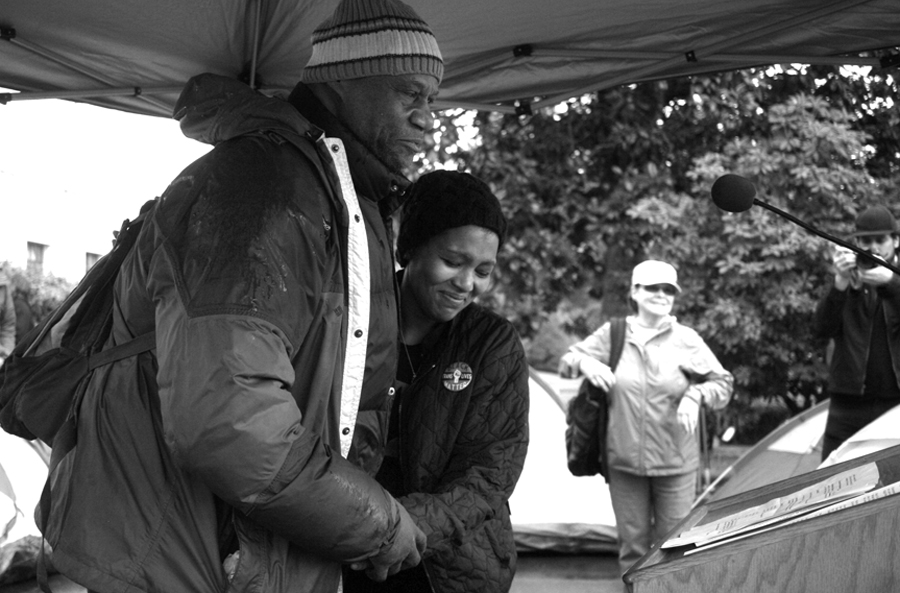
Admiration amongst advocates. Teressa Raiford, right, and Marvin Ross, left. Teressa and Marvin exchange a hug just before Marvin begins to speak to the crowd.
Portland Raging Grannies, part of an international organization “made up of women of a certain age” opened the Oregon SOS demonstration with words of encouragement through their songs. They came out to the rally to address minimum wage and how we need to have a living wage for people and to push the legislators to make that a reality.
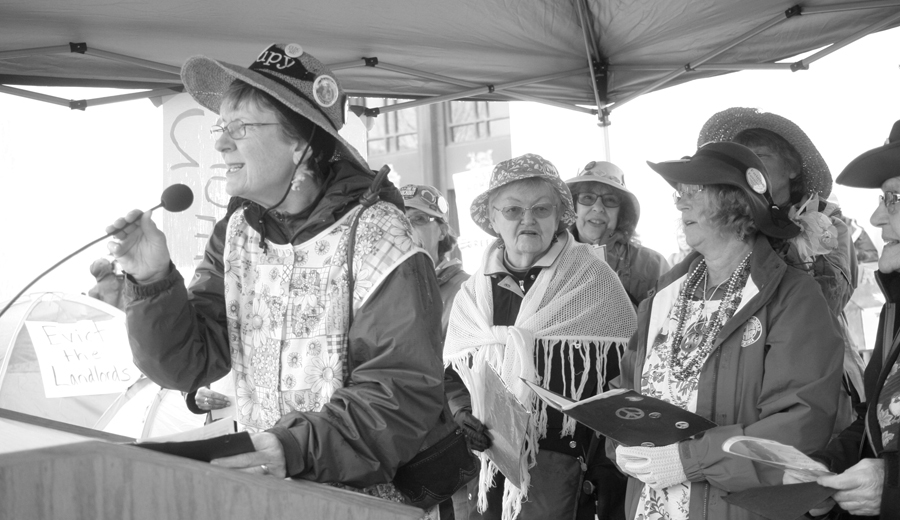
Prior to the rally beginning, I asked the Raging Grannies if they remember hearing the same argument, about how minimum wage will not solve the problem, throughout their experiences. The answer from all of them is yes. One of the grannies responded, “I collected signatures back in 89, using an ironing board outside of the Fred Meyer’s store for all of the people who were for raising minimum wage and I heard all the same old tired arguments that I’m hearing today and it’s nonsense.”
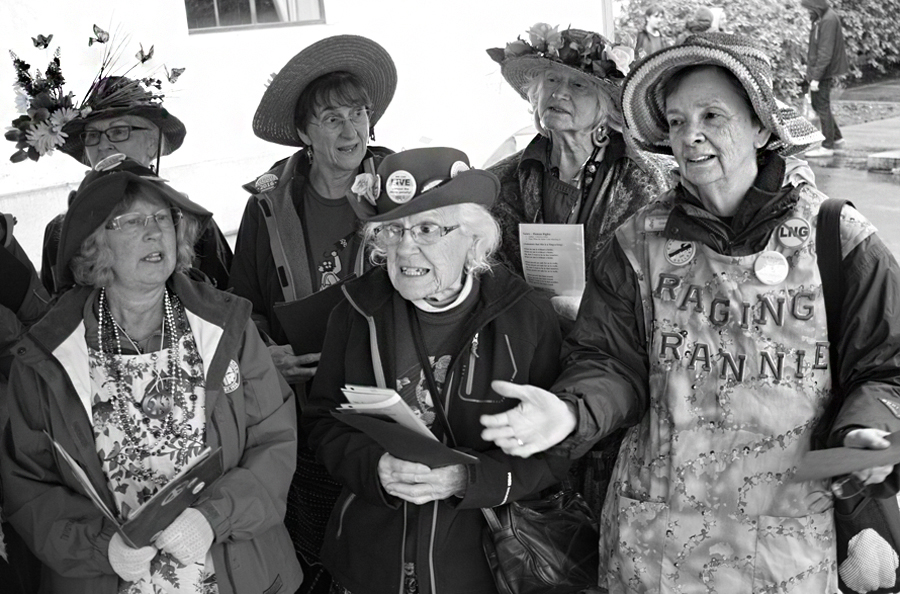
One of the songs they rewrote and lead the crowd in addresses the day’s topic of discussions.
When streets are safe, for us to walk, when streets are safe for us to walk, oh how I want to be in those numbers when they are safe for us to walk. When poverty has been erased, when poverty has been erased, oh how I want to be in that number, when poverty has been erased. When workers get a living wage, when workers get a living wage, oh how I want to be in that number, when they get a living wage. When no-one is without a home, when no-one is without a home, oh how I want to be in that number, when no-one is without a home. ~ Song lead by the Raging Grannies to the tune of “When The Saint’s Come Marching In”
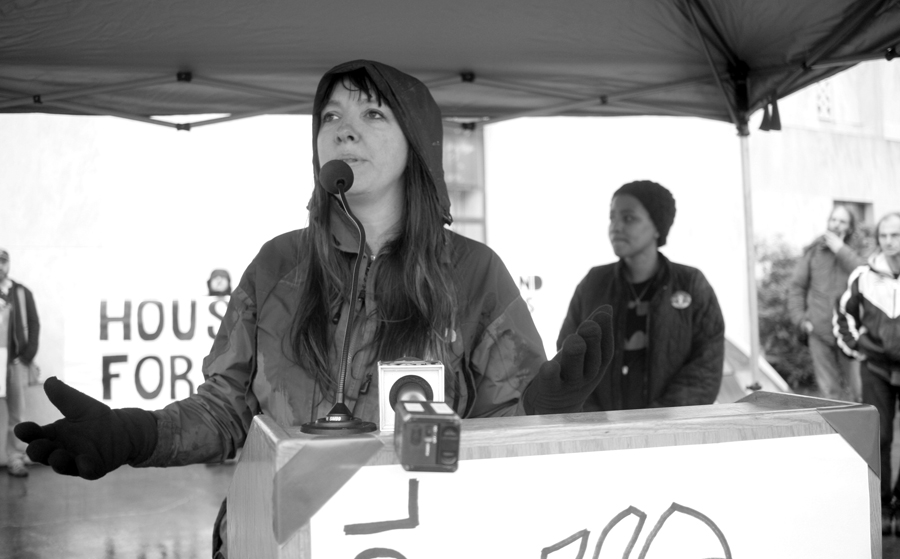
Margot Black, founder of Portland Tenants United speaks to the crowd about the need for rent control. She advocates holding legislation accountable to the constitutional clause that lets local jurisdictions enact rent control laws in the case of a natural or man made emergency that results in material elimination of housing. Oregon legislation has made it so that local jurisdictions are not allowed to enact rent stabilization where the rent is out of control.
If people camping on every sidewalk and in every park is not a material elimination of housing, what is? When families and senior citizens and people with chronic health conditions and people of color are getting no cause evictions and they are paying their rent and have done nothing wrong to warrant a forced displacement from their home, how is that not a material elimination of housing? They had housing, now they don’t! ~ Margot Black
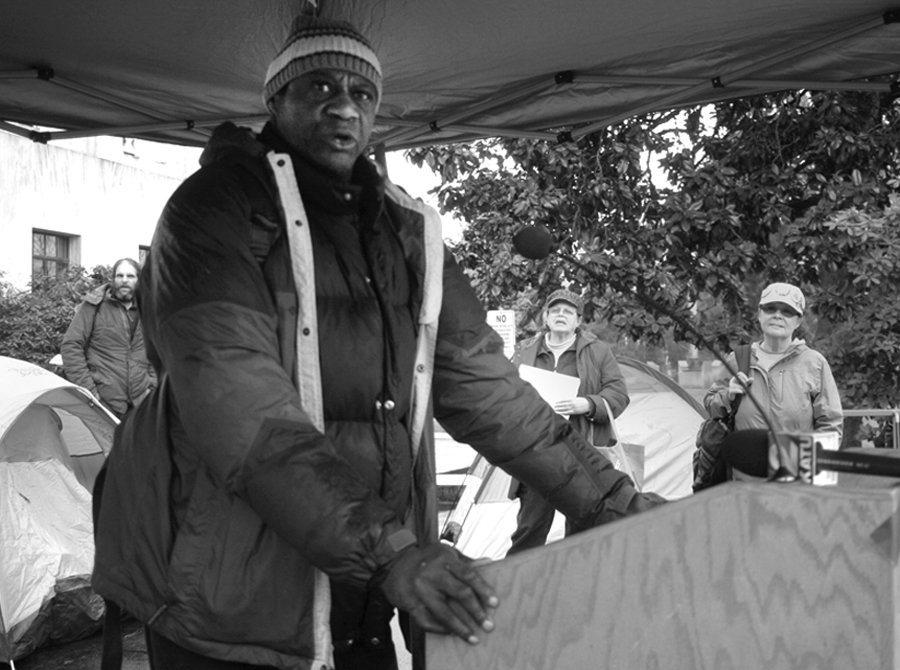
Marvin Ross, local housing rights advocate and one of the founding members of Hazelnut Grove, an organized homeless camp in North Portland, talks to the crowd about wanting to change the image of homelessness and about how being a part of Hazelnut Grove has given him the opportunity to see how anyone and everyone can become homeless.
The laws have got to change. I can see now by people coming together, standing up for what is a right for everybody in America and I can see the changes that are happening and it has opened up my eyes, made me aware that it’s not just about me it’s about everybody that’s around me, how when somebody else is homeless it affects me cause I could be in a house next year or so and I could still be evicted by a greedy landlord who wants to increase my rent just because he has someone else in line who’s willing to pay him more. I could see being evicted for no reason, because of greed. Before I wasn’t aware of that. I just thought a landlord had the right to do what ever he wanted to. ~ Marvin Ross
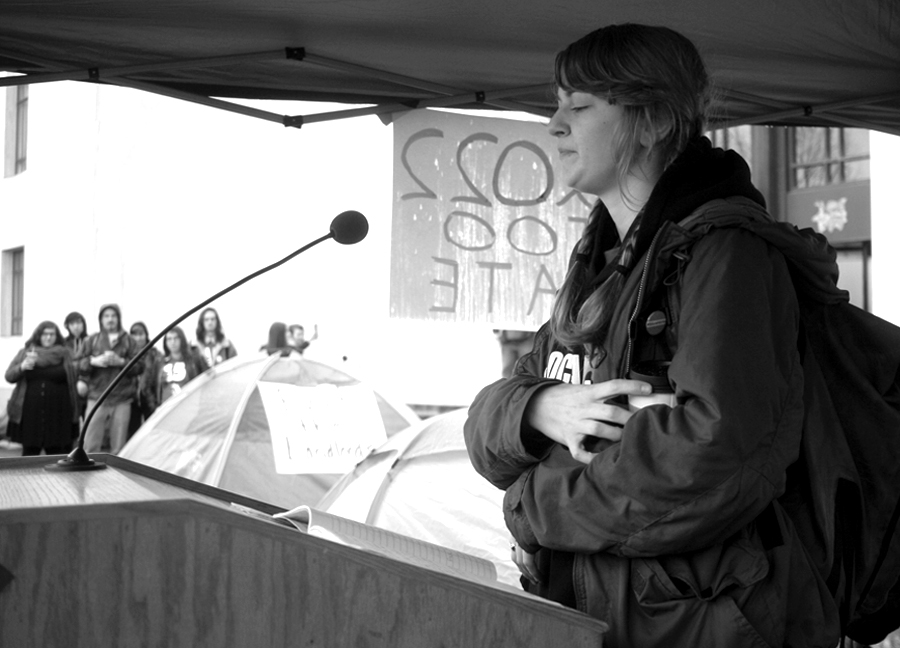
Kelsey Schomberger, disabled activist reads a statement to the crowd.
Not only should every worker be paid living wages, but no one should be living in poverty. This especially includes people who can not work due to disabilities as well as disabled workers. It is important that we don’t leave anyone behind in our fight against the economic violence of poverty. People with disabilities and mental illness must be included in this conversation. There are currently estimated over 58 million people living with disabilities in this country. These are some of the most vulnerable members of our population and many are poor, struggling, and a number of them face the threat of homelessness. How is it that our government has the money to fund the creation of instruments of war and corporations are provided subsidies as billions are made in profit for a small number of individuals, while our society can not take care of its members who need help the most? ~ Kelsey Schomberger
Participants outside of the Oregon State Capitol building listened to the speakers, cheered in support of what was being said and chanted statements in unison.
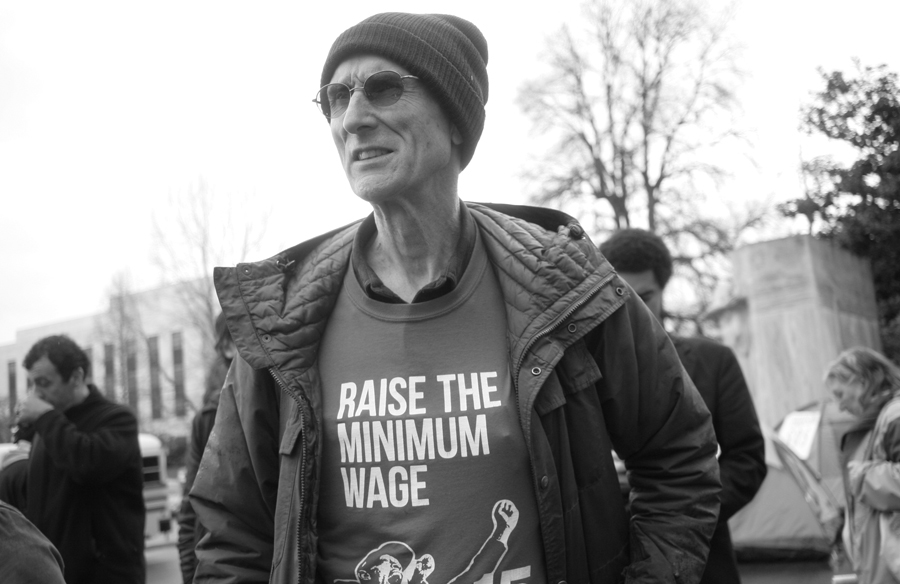
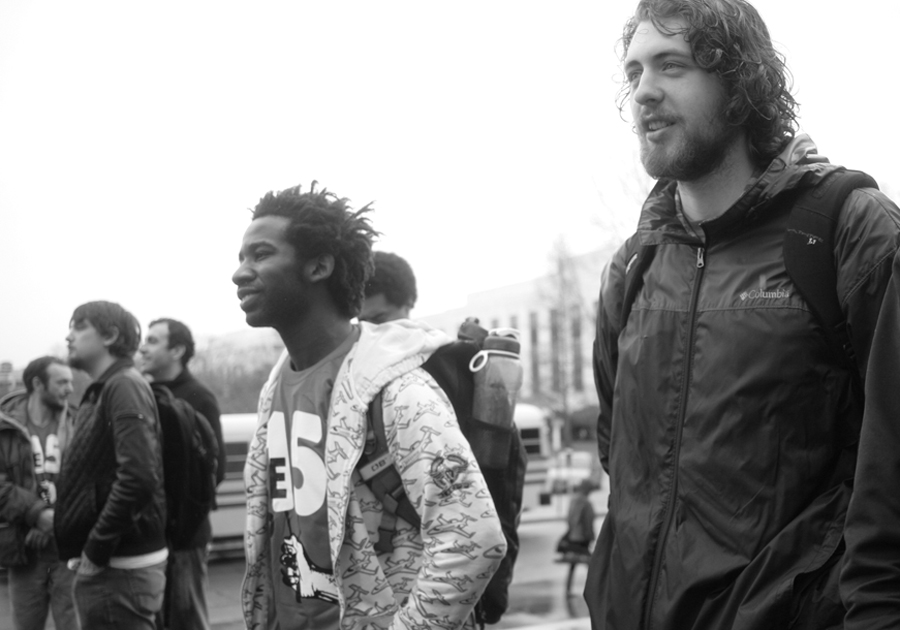
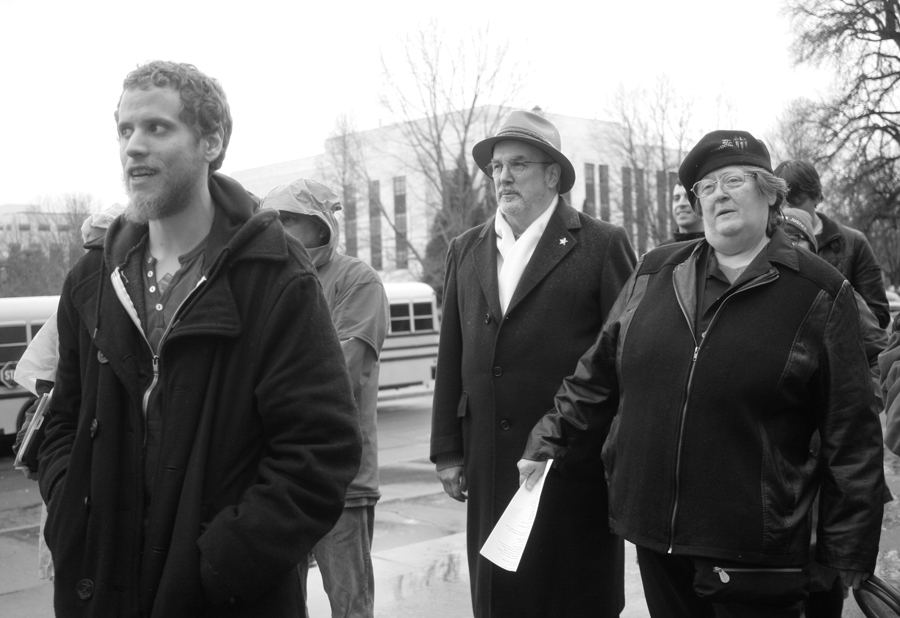
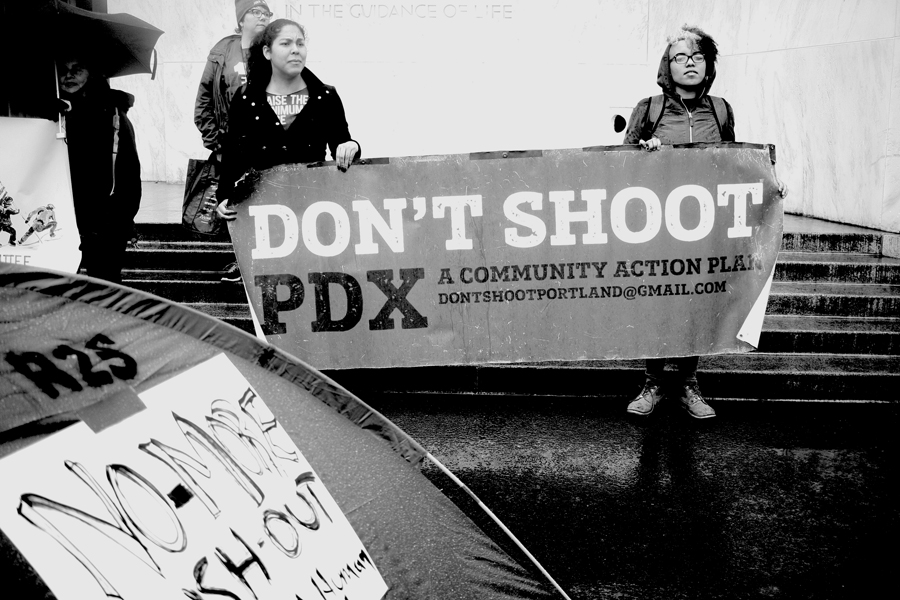
Hey hey, ho ho, no cause evictions have got to go. Hey hey, ho ho, no cause evictions have got to go! Emergency, it’s just outrageous high rents and low wages. Emergency, it’s just outrageous high rents and low wages! What do we want:$15, when do we want it: now. What do we want: $15 when do we want it: now! ~ Outside Crowd Chants
Once the speakers were finished outside, participants headed inside the Oregon State Capitol building to make a plea and statement to Governor Brown and the Oregon legislation.
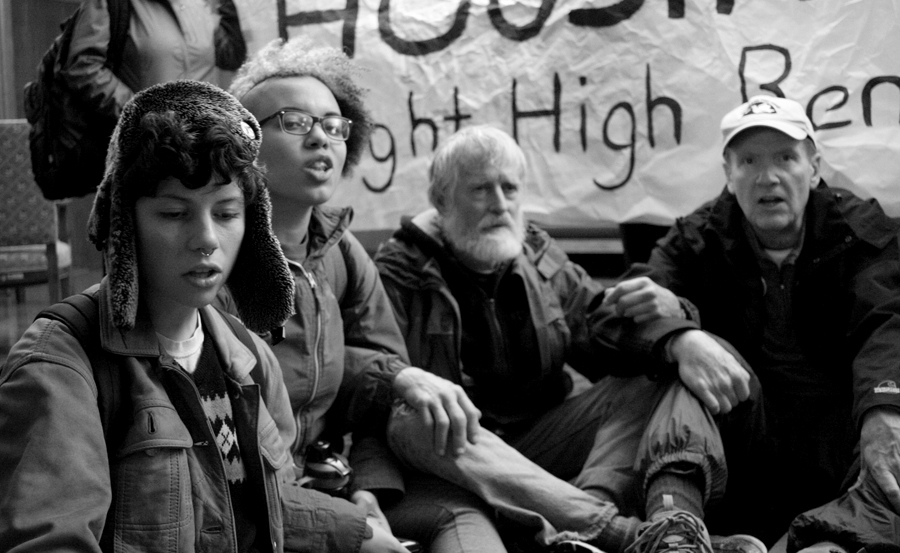
Participants sat down and linked hands, forming a human connection that extended from outside the governor’s office and into the hallway of the capitol building.
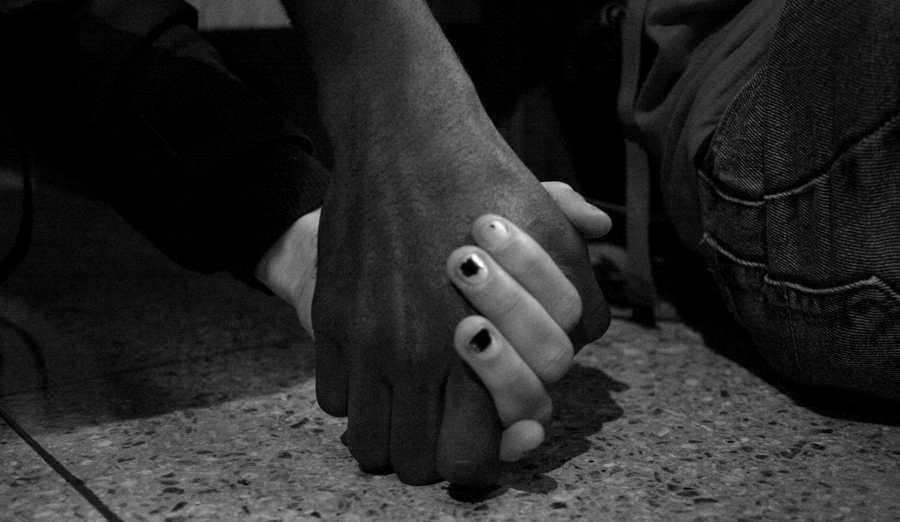
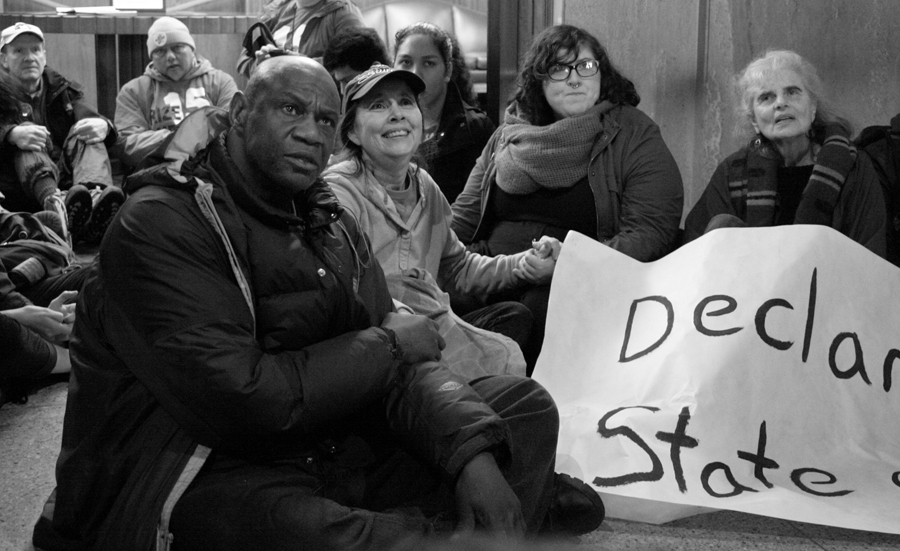
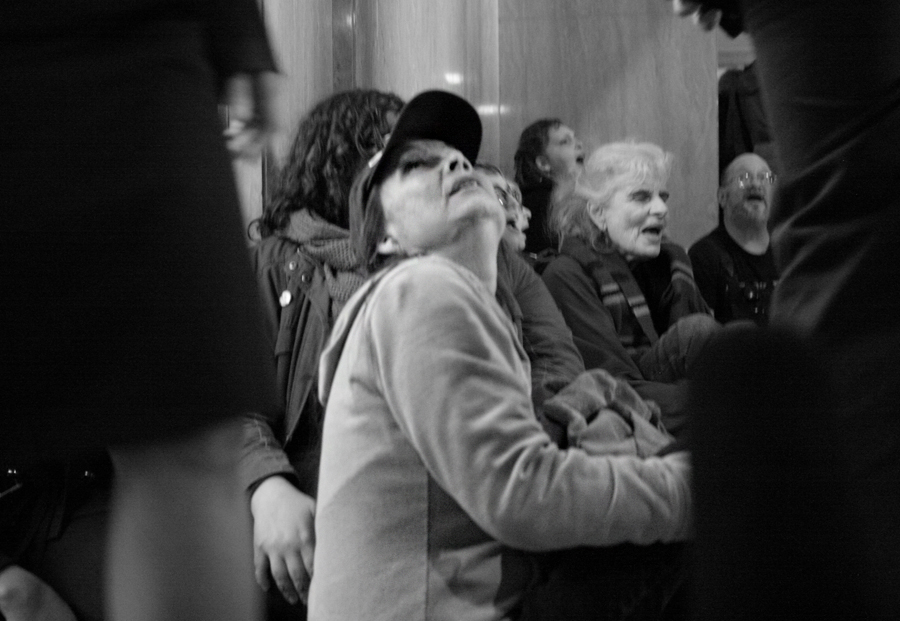
Linda Lloyd looks up at leaders walking out of the governor’s office. At this time, the participants were chanting, Governor Brown come on down, Governor Brown come on down! The governor never came down and the leaders who walked out of the governor’s office walked past the participants, ignoring their presence.
Linda came out to represent mobile home owners who are renting spaces for their home. Linda lives in a mobile home park where her rent has been raised by $200.00, with no repairs done by her landlord in the last two years and on land that looks like slumlord conditions. Mobile trailer parks are being purchased throughout Oregon by wealthy developers outside of Oregon and they are increasing the cost of rent for each space as well as eliminating the ability to rent a space if your trailer is over 10 years old. These changes are making it too expensive for the people who already live there, being forced to try and find another place to move to and often times unable to due to the year of their mobile home. Seniors in Linda’s mobile home park are scared, she told me, and nothing is being done to help them.
I’m representing 89,000 mobile home owners in one person. ~ Linda Lloyd
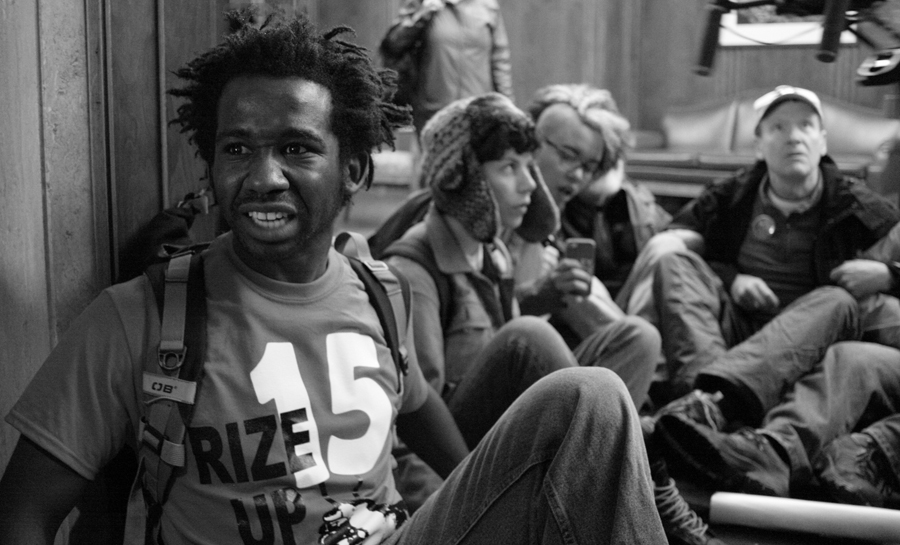
Jamaal Bakari Hill, left, goes by Bakari because one of its meanings is hope.
I am here because I am hopeful that we can get the housing crisis here in Oregon under control. I am hopeful that we can get a minimum wage raise to $15.00 an hour. I am hopeful that future generations that come to call this place home, this wonderful state, do not have to struggle the same way that I and others have, trying to make a living and at the end of the day, I hope our collective voices are heard, our worries, our fears, our concerns, cause at the end of the day we are Oregonians. We are the people who make up this state. We are the people who make everything happen here. If we want to have a future, one that will be bright for everyone, we have to work together. ~Jamaal Bakari Hill
Participants ended the rally by keeping some of the participants outside of the governor’s office while others went to bang on the walls and call out to the legislators who were in a closed meeting to discuss increasing minimum wage, over the next six years, which is not an acceptable time frame said the participants.
We have people who are homeless, we have people living on the streets, we have people who are being detained. We don’t have enough and that’s why we’re here. We have a governor right now telling us we will have enough in six years, in six years! In our city of Portland, poor people in this State are being pushed out, we have to stand up and we have to fight back and we have to fight back now. When we go out on to the streets and we’re fighting for black lives, we’re saying that everyone who lives in America that lives in poverty should consider themselves black, because their lives do not matter and when the legislator tells you that you have six years to wait for a living wage, that is not happening: we will shut things down if we need to. ~ Teressa Raiford
Audio from inside the capitol building. Participants call out statements and chants addressing issues pertaining to poverty, homelessness, our housing state of emergency, rent increases, minimum wage and more. “Mic check” was often used to announce when someone in the crowd was about to speak. When mic check is stated, all of the participants repeat mic check and proceed to repeat what the speaker is saying, which is then followed by chants that reiterate the statement. Play audio bar below to hear the entire audio from the participants inside the capitol building. (37 minutes)
Photos and Story are © Mary Anne Funk at http://www.maryannefunk.com. Photos may not be used without permission and must contain copyright if permission is granted.
[su_divider top=”no” text=”Homelessness in Portland, Oregon” style=”dotted” size=”2″ margin=”30″]
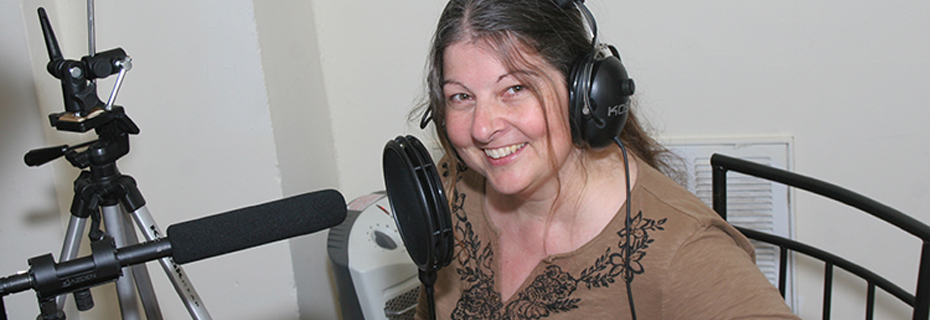
Mary Anne Funk is an independent documentary photographer and visual anthropologist in Portland, Oregon. Mary Anne’s focus is in social issues pertaining to poverty in her community and in America. She works independently and collaboratively to address topics that include: living in poverty, redefining perceptions of homelessness, and social inequality due to economic class, race, and culture. Mary Anne understands on a personal level what it is like living in poverty.
